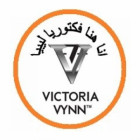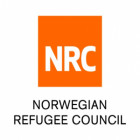وظيفة شاغرة
Project Manager, Water Security - United Nations Development Programme (UNDP) in Libya
UNDP is committed to achieving workforce diversity in terms of gender, nationality and culture. Individuals from minority groups, indigenous groups and persons with disabilities are equally encouraged to apply. All applications will be treated with the strictest confidence. UNDP does not tolerate sexual exploitation and abuse, any kind of harassment, including sexual harassment, and discrimination. All selected candidates will, therefore, undergo rigorous reference and background checks. BACKGROUND With little natural precipitation and no rivers, Libya is one of the most water stressed countries in the world. It currently uses ground water at a rate hundreds of times greater than is replenished. The majority of Libya’s coastal ground water is already penetrated by sea water and is increasingly mixed with other pollutants due to the lack of water treatment. To offset this stress, the country is increasingly reliant on fossil water from deep within the desert. The process of extracting this water is, however, becoming increasingly tenuous and costly as infrastructure in the Man Made River ages and is damaged. Water tables in the fossil aquifers, particularly the Murzuq Aquifer in the south-west, are also lowering and will eventually be exhausted. Normally, a country as wealthy and water stressed as Libya would rationalise water use and diversify its water resources. An increase in water tariffs would incentivize rationalisation and generate resources for investment. This includes raising the price of water in the agricultural sector which would be encouraged to improve irrigation methods and switch to less water intensive crops. Improvements in water treatment facilities would not only recycle wastewater but avoid ground and coastal water contamination. To diversify its water resources, new desalination plants would need to be built and old ones either retired or upgraded using reverse osmosis rather than thermal desalination technology. While these systems are upgraded, exploitation of fossil water could be improved by upgrading Man Made River Authority (MMRA) infrastructure to reduce leaks and evaporation from its open water reservoirs. Unfortunately, due to poor governance, the conflict and inverse incentives related to its rentier economy, Libya has not moved in this direction. Instead its reliance and over exploitation of fossil water has increased despite the progressive depletion of this finite resource. Rather than increasing tariffs, water continues to be free both to the public and to private enterprises including large and small agriculture projects. Agriculture continues to consume over 80% of Libya’s water with much of that being used through open sprinkler irrigation. Libya’s six remaining desalination plants are old and increasingly ineffective, and its wastewater treatment plants are largely inactive leading to increasing environmental and health problems. MMRA infrastructure is increasingly decrepit, and the Ministry of Water estimates that over half of the water generated is lost due to leakage and evaporation. There is no more immediate nor more impactful threat than water security in Libya. If Libya is to remain viable as a country, the water system needs to be reformed. Investments must be channelled to stabilize the existing systems, particularly the MMRA, allowing more time for more sustainable systems to develop into a more diversified, decentralised, resilient and cost-effective water management system. Given the governance regime in the water sector, such an effort requires multiple lines of effort to be implemented in parallel. This includes stabilizing the MMRA to avoid its collapse and reduce waste. It includes encouraging a process of policy reform that will create the right incentives for water rationalisation, including in the agriculture sector, and for investment in desalination and wastewater treatment. Due to the growing and immediate needs in communities across Libya, a process of developing and implementing local climate resilient water management plans will need to be rolled out across the country. By empowering local communities to care for and value their water resources, demand will reduce and a more inclusive, decentralised and durable water system will be created. Although the challenges are significant, the following three lines of intervention are proposed as a way forward. These interventions were developed to complement UNDP’s related work in the energy transition and climate change and will be implemented in a manner that is coordinated with and complimentary to the efforts of other partners in the water sector including UNICEF, FAO and the AfDB. Under the overall guidance of the Deputy Resident Representative (Programme) and the day-to-day work, collaboration and providing direction from the Head of the Environment and Energy Pillar Leader, the Project Manager leads the project implementation in close collaboration with project counterparts, and other UN agencies as appropriate. The Project Manager works in close collaboration with the Country Office as required for optimal project implementation Position Purpose: The Project Manager (PM) will support the successful execution of the Water Security project by performing the following functions: 1.Overall project management and coordination 2.Stakeholder engagement, resource mobilization, communications, and partnerships; 3.Implementation of project outputs and activities All activities will be conducted in line with UNDP’s POPP and as defined in the AMP Regional Project documents. The Project Manager will work closely with: (i) other projects under the Energy and Environment Pillar to ensure NEXUS, Under the overall supervision of the DDRP, the Project Manager will report to the Energy and Environment Pillar lead DUTIES & RESPONSIBILITIES Overall project management and coordination: Stakeholder engagement, resource mobilization, communications, and partnership: Implementation of project outputs and activities: Supervisory/Managerial Responsibilities: COMPETENCIES Core Competencies Achieve Results: LEVEL 3: Set and align challenging, achievable objectives for multiple projects, have lasting impact Think Innovatively: LEVEL 3: Proactively mitigate potential risks, develop new ideas to solve complex problems Learn Continuously: LEVEL 3: Create and act on opportunities to expand horizons, diversify experiences Adapt with Agility: LEVEL 3: Proactively initiate and champion change, manage multiple competing demands Act with Determination: LEVEL 3: Think beyond immediate task/barriers and take action to achieve greater results Engage and Partner: LEVEL 3: Political savvy, navigate complex landscape, champion inter-agency collaboration Enable Diversity and Inclusion: LEVEL 3: Appreciate benefits of diverse workforce and champion inclusivity People Management UNDP People Management Competencies can be found on the dedicated site. Cross-Functional & Technical competencies: Business Management – Project Management: Ability to plan, organize, prioritize and control resources, procedures and protocols to achieve specific goals Business Management – Partnerships Management: Ability to build and maintain partnerships with wide networks of stakeholders, Governments, civil society and private sector partners, experts, and others in line with UNDP strategy and policies Business Management – Resource Management: Ability to allocate and use resources in a strategic or tactical way in line with principles of accountability and integrity Business Direction & Strategy – Effective Decision Making: Ability to take decisions in a timely and efficient manner in line with one’s authority, area of expertise and resources Business Management – Result Base Management: Ability to manage programmes and projects with a focus at improved performance and demonstrable results 2030 Agenda / Nature, Climate and Energy / Water: Integrated Water Management RECRUITMENT QUALIFICATIONS Education Experience Language Requirements IMPORTANT NOTE: Please note that continuance of appointment beyond the initial 12 months is contingent upon the successful completion of a probationary period. UNDP Disclaimer for FTA/TA International Posts Important information for US Permanent Residents (‘Green Card’ holders) Under US immigration law, acceptance of a staff position with UNDP, an international organization, may have significant implications for US Permanent Residents. UNDP advises applicants for all professional level posts that they must relinquish their US Permanent Resident status and accept a G-4 visa, or have submitted a valid application for US citizenship prior to commencement of employment. UNDP is not in a position to provide advice or assistance on applying for US citizenship and therefore applicants are advised to seek the advice of competent immigration lawyers regarding any applications. Applicant information about UNDP rosters Note: UNDP reserves the right to select one or more candidates from this vacancy announcement. We may also retain applications and consider candidates applying to this post for other similar positions with UNDP at the same grade level and with similar job description, experience and educational requirements. Scam warning The United Nations does not charge any application, processing, training, interviewing, testing or other fee in connection with the application or recruitment process. Should you receive a solicitation for the payment of a fee, please disregard it. Furthermore, please note that emblems, logos, names and addresses are easily copied and reproduced. Therefore, you are advised to apply particular care when submitting personal information on the web. The post Project Manager, Water Security first appeared on LibyaCV.Project Manager, Water Security
Job Description
لتقدم للوظيفة أنتهت صلاحية الاعلان






